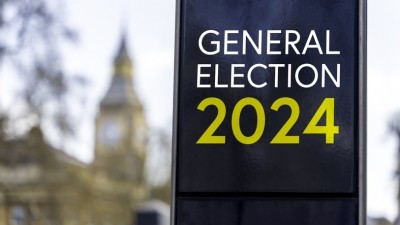AIC: Next UK government must resolve policy divergence between the UK and EU and standardize sustainability metrics

The AIC represents 230 businesses in the UK animal feed, crop protection and agronomy, fertiliser, grain trading and seed sectors.
It is now calling on the next UK government to deliver on an independent report's recommendations for an independent food security committee. There is widespread support from farming unions, politicians, and academics for such a body, said the trade group, with the idea first being mooted at AIC’s conference in November last year.
The working assumption is that there will be a UK general election in the second half of this year.
The AIC is also urging the next government to improve trade by addressing policy divergence between the UK and EU, as well as within the UK home nations, and to standardise sustainability metrics, ensuring that UK agriculture is not disadvantaged.
“What we do with our land resource, and the food we produce with it matters for our economy, our productivity, our environment, and our people. Unlike other countries, the UK lacks a joined-up, cross-government strategy on land use or food security.
“To make long term, strategic planning decisions, businesses need to be clear on the next government’s vision for our land and the role of food producers within it.
“AIC is calling for an independent, statutory food security committee to be established, considering the food production and land use balances needed for the UK and all Whitehall departments,” stresses that trade group’s chief executive, Robert Sheasby.
Improving trade with the EU, and within the UK nations
Barriers to trade have arisen because of the UK-EU trade agreement, highlights the AIC. The deal has made goods harder to import and export, it maintains.
UK regulatory bodies are struggling with the implementation of the agreement, and industry is dealing with costly delays and extra paperwork to trade in goods. This is also impacting the UK internal market, resulting in inconsistencies in legislation across the four nations, says the trade group.
“Currently there is no formal policy or mechanism established by the UK government to monitor or track the growing policy divergences between the UK and EU, with trade bodies and businesses left to undertake this crucial work themselves.”
Negotiate a functioning veterinary or sanitary/phytosanitary (SPS) agreement with the EU would also help UK businesses. “This would allow goods to be traded more easily with the EU and with Northern Ireland, while respecting the UK’s independence in trade and legislation.”
Consistent approach to sustainability
A consistent approach to sustainability in the food supply chain is also required, argues the AIC.
“Sustainability credentials are being requested at product and business level from consumers and supply chains. Access to consistent and accurate information is vital to build credibility and confidence in claims made alongside fairness in the food system.”
AIC believes that future MPs should help facilitate this work and ensure that UK agriculture is not disadvantaged.
“To deliver a net zero transition in our food supply chain, the next government must commit to a blended public and private finance landscape including tax credits and green transition support. Other countries have made this investment already, and the UK risks being left behind.”











